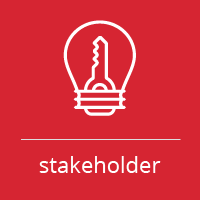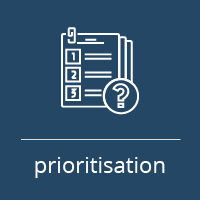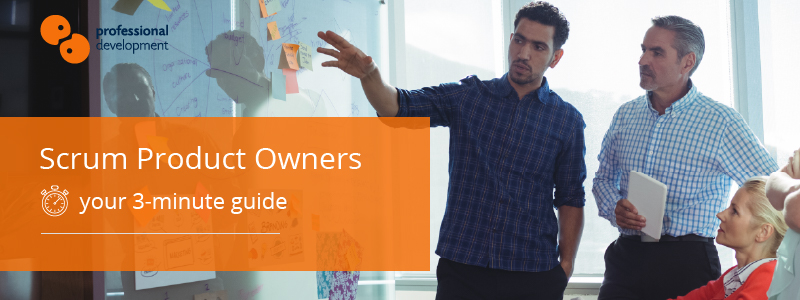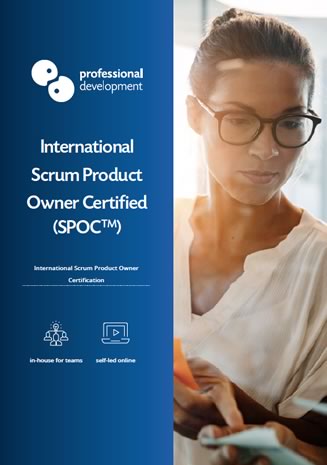What is a Scrum Product Owner?
Published, 10th August 2021Demand for Scrum Product Owner courses and certification has been growing steadily in the past 5 years.
If you’re familiar with the concepts of Scrum, but want to understand more about the role of Scrum Product Owner, this 3-minute article can offer some helpful insights.
We Cover:
- Scrum Product Owner or Agile Product Owner?
- What does a Scrum Product Owner do?
- Characteristics of Scrum Product Owners
- What is the difference between Scrum Master and Product Owner?
- Traditional Product Owners vs Scrum Product Owners
- What is the best Scrum Product Owner certification?
- How can I become a Scrum Product Owner?
Get Instant Info on Scrum Product Owners
You can get answers to all of the questions above, plus more Scrum Product Owner detail by downloading our PDF Scrum Product Owner Course brochure.
It includes everything you need to know about Scrum Product Owners and certification to get started.
A Quick Note on Scrum and Scrum Teams
If you’re not familiar with Scrum, here are some helpful and concise resources to browse:
Scrum Teams revolve around clearly structured roles and responsibilities. These roles include the subject of our article, the Scrum Product Owner.
Scrum Product Owner or Agile Product Owner?
The terms “Scrum Product Owner” and “Agile Product Owner” are often used interchangeably when referring to the same or very similar roles.
As Scrum is a form of Agile, often organisations will have a mix of Scrum and Agile approaches. Therefore, an Agile Product Owner often carries out many of the same duties as a Scrum Product Owner.
For simplicity, we refer to the role as "Scrum Product Owner" or SPO throughout this article.
What does a Scrum Product Owner do?
As outlined in Lucidchart’s article, “7 Key Product Owner Responsibilities”, the product owner is responsible for maximising the value of products created by the scrum team.
This means there are many facets of this single role, including:
- Key project stakeholder
- Creating a clear vision
- Communicating with client and team
- Prioritising requirements
Let’s look at these responsibilities in a little more detail...

Key Project Stakeholder
We begin here as all other elements of the Scrum Product Owner role feed into the “key stakeholder” aspect.
You’ll often hear Scrum Product Owners referred to as “key stakeholders” within a Scrum team or project. This is because they have a high level of influence in the direction and results of each Scrum project.

Creating a Clear Vision
Scrum product owners look at the big picture. They have a clear vision for the project’s trajectory and end results.
Using this high-level knowledge, they will define a set of criteria for the project.

Communicating with Client and Team
Throughout the lifecycle of a project, the SPO liaises with both the client / customer and the scrum team.
They are responsible for keeping a clear line of communication open both ways to manage expectations, identifying roadblocks, and communicating changes.
The SPO also functions as the “voice of the customer”. This means understanding and then championing a client’s priorities.

Prioritising Requirements
Throughout the project cycle, the SPO will keep an eye on progress and adjust priorities as needed.
They maintain a steady focus on the project’s goals, working closely with the Scrum Master to find the best path to achieving these goals.
Characteristics of Scrum Product Owners
Scrum Product Owners:
- … have a strong understanding of whatever the scrum team are working on. That may be a product, process, system, or service.
- … are excellent communicators. As they are the key liaison between the client and the scrum team, they need to possess clear and effective communication skills.
- … are organised. As you’ll note from our key responsibilities listed above, the role of SPO requires a good level of organisation to keep the project on-track towards the end goal.
The Good News
If you don’t have all or many of these characteristics, don’t worry!
Everything we have mentioned above can be acquired through training, certification, or in the case of "understanding", by simply carrying out the role.

What is the difference between Scrum Master and Product Owner?
“Scrum Master vs Product Owner” is a common discussion topic for those considering a Scrum certification.
There is no “better” choice for certification, only what is most relevant to the work you want to do within your project team.
The Scrum Master and Product Owner work closely together throughout the project, covering some overlapping but mostly distinct responsibilities.
You’ll find the SPO role outlined here or in our Scrum Product Owner Certified (SPOCTM) brochure. Our article, “What is a Scrum Master?” offers insights to the role and responsibilities of a typical Scrum Master.
Traditional Product Owners vs Scrum Product Owners
The Product Owner role in “traditional” project management closely aligns with the Scrum Product Owner role in Scrum and Agile projects.
Expanding your capabilities to incorporate Scrum is a wise choice for those who already work in a conventional Product Owner role.
In doing so, you may gain fresh perspectives on what is possible within the role and will be able to perform as a key team member in Scrum projects.
What is the best Scrum Product Owner Certification
Again, there is no “best” choice when it comes to certification. There are several excellent qualifications available for aspiring SPOs.
We advise taking your time to find a Scrum Product Owner Course and certification that fits:
- Your preferred learning method (self-led, live training, in-person)
- Your schedule (short vs long courses)
- Your budget
Other factors to look out for include:
- Provider reputation: It’s best to choose an established, reliable provider you can get in touch with easily.
- Certification: International certification is usually the best option for flexibility and credibility.
- Course Content: Make sure to review what is covered during the course, so you know that it ticks the boxes for what you want to achieve.
- Adaptability: Unless you are seeking a software development focused course, choose an SPO certification that provides you with flexible skills that can be adapted to any industry.




